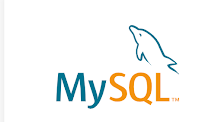Knex vulnerability with MySQL
Knex.js is a popular SQL query builder for Node.js that allows developers to write SQL queries in a more readable and maintainable way. However, like any software, it is not immune to vulnerabilities. One of the most critical vulnerabilities that can occur when using Knex.js with MySQL is SQL injection.
 |
| source: https://www.mysql.com |
SQL injection is a type of attack in which an attacker is able to inject malicious SQL code into a query, potentially compromising the entire database. This can happen when user-provided data is not properly sanitized before being included in a query.
In the case of Knex.js, the vulnerability occurs when developers use string concatenation to build SQL queries. This can allow an attacker to inject malicious data into the query, potentially compromising the entire database.
To mitigate this vulnerability, it’s important to use parameterized queries instead of string concatenation. Knex.js provides a way to do this through the use of placeholders in the query. This way, the data passed in is automatically sanitized and any attempts at SQL injection will be thwarted.
Another way to protect against SQL injection is to use an ORM (Object-relational mapping) library such as Objection.js, which is built on top of Knex.js and provides additional security features.
It’s also important to keep your Knex.js and MySQL versions up-to-date to ensure that any known vulnerabilities have been patched. Additionally, running regular security audits on your code can help identify any potential vulnerabilities and take the necessary steps to fix them.
In summary, SQL injection is a critical vulnerability that can occur when using Knex.js with MySQL. To mitigate this vulnerability, it’s important to use parameterized queries, use ORM libraries, keep your versions up-to-date and run regular security audits on your code.

Comments
Post a Comment